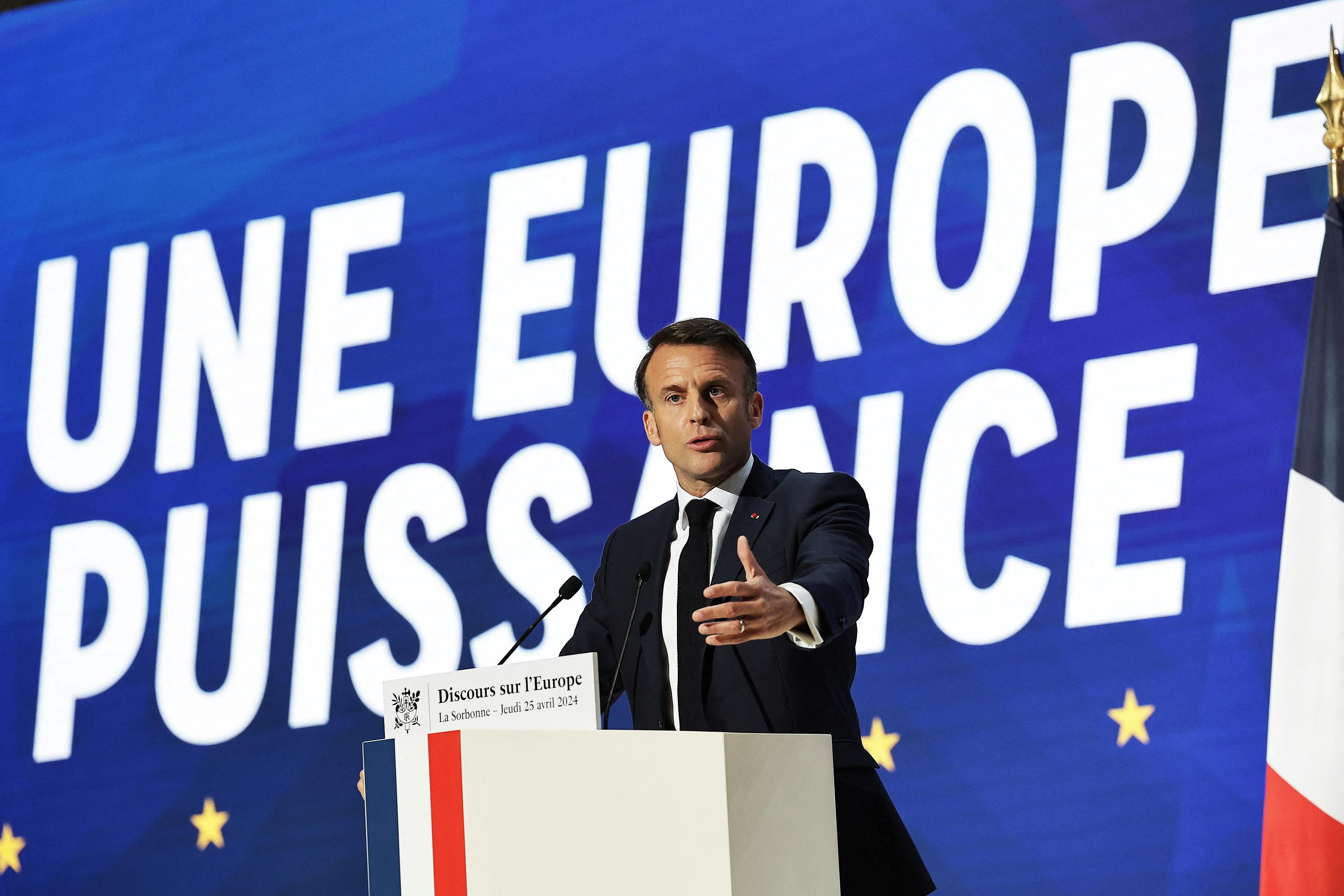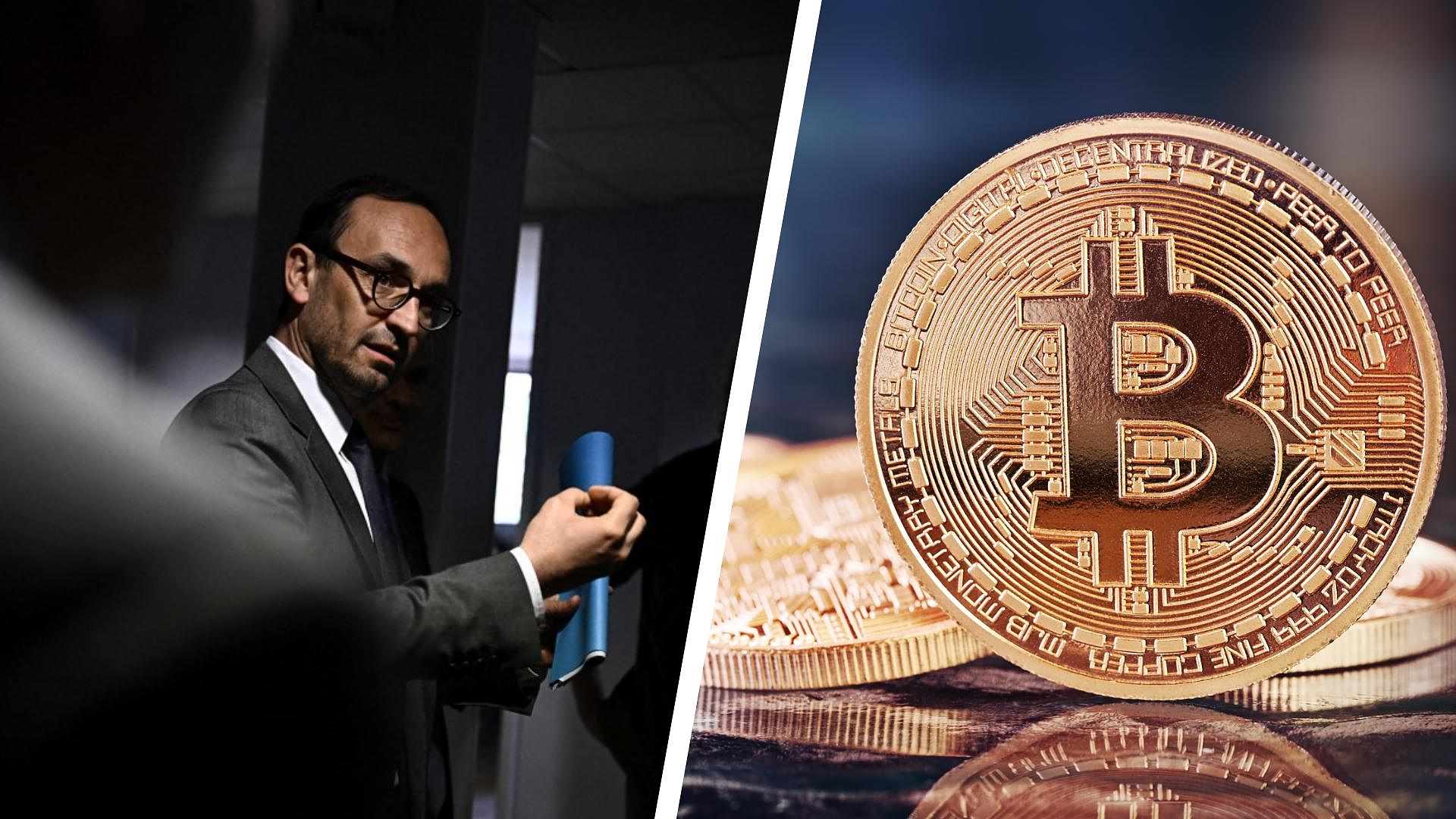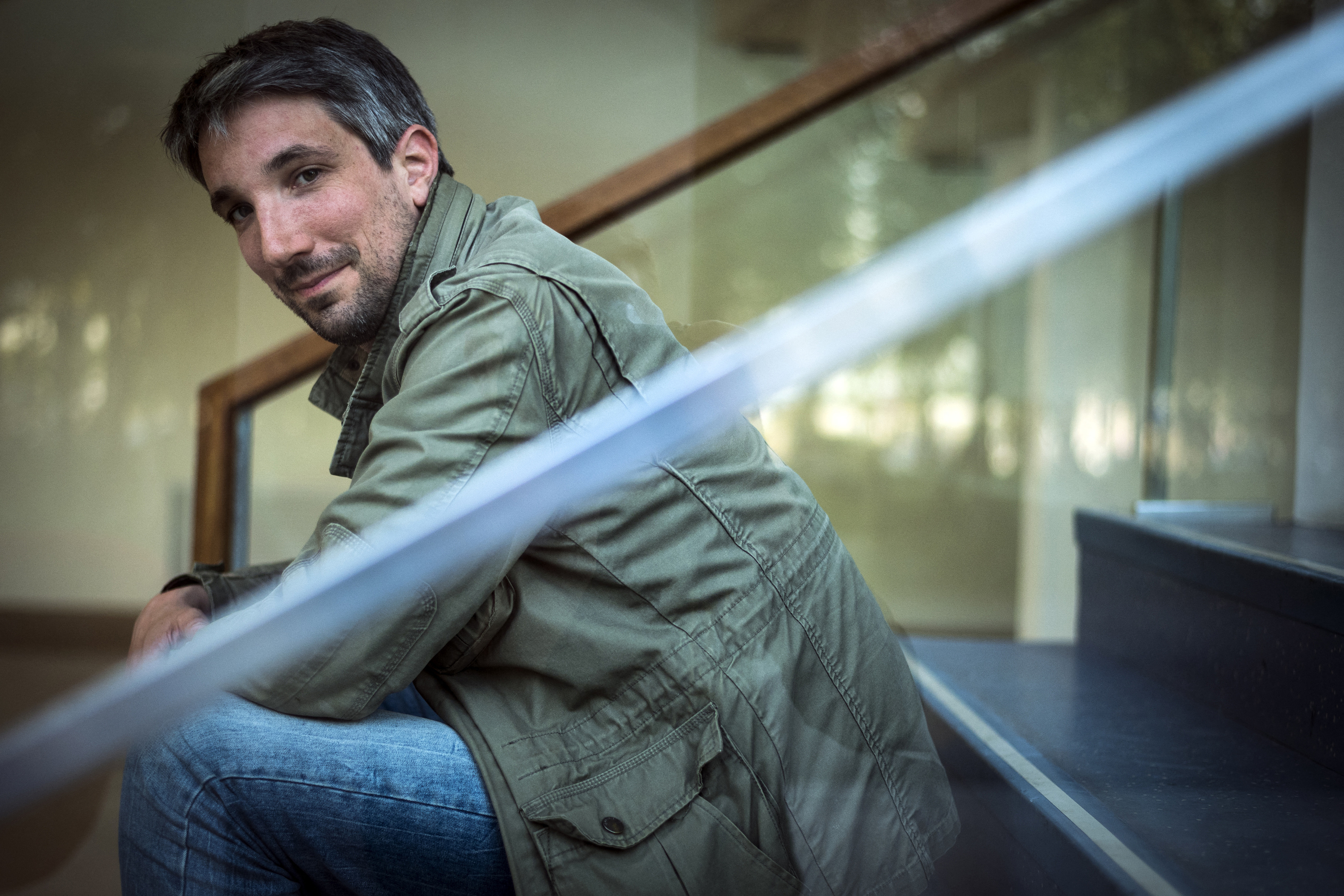In addition to being a demanding sporting discipline, Formula 1 is an artistic spectacle. Technical progress and the means implemented have allowed viewers to be immersed with the drivers on the track, but also in the garages and paddocks. Jean-Michel Tibi, the star cameraman of F1, recounts his memories in a delightful book “30 years of F1, my secret stories” (ed. City). On the occasion of the Qatar Grand Prix, which saw Max Verstappen take the title in the sprint race, he shares his anecdotes and his view on the discipline.
LE FIGARO.- How did you get into Formula 1?
Jean-Michel TIBI.- I have always loved motorsport. Two of my cousins went to the Grands Prix at the end of the 1980s. Our national hero was Alain Prost. We dreamed of meeting him. Which was the case in 1993: they gave him the tricolor during one of his victories. One thing led to another, and thanks to connections, I started working in motorsport: I filmed national, European, car and motorcycle championships. And at the same time, I was in F1 where I accompanied the VIPs. That’s where I met not my hero, but my hero’s rival: Ayrton Senna. In 1996, my cousin warned me that Formula 1 was going to launch its digital TV channel and that they were looking for cameramen. I called F1 and came straight to Eddie Baker (head of TV broadcasting, editor's note), who was the only one working that late. He said to me: “Send your CV” and I was booked for three GPs. Then for the whole season. I have been working in Formula 1 for 26 years, and 480 Grands Prix: first for Bernie Ecclestone, then Canal, and I returned with Bernie and Liberty Media.
What is your way of filming? Do you prioritize efficiency or do you also want to bring an artistic perspective to the discipline?
Filming cars going fast is quite easy if you position yourself in the right place. You have to know the circuits and the discipline. In Formula 1, we have to film the speed. The F1 bosses explain to us that our job is for the viewer to see as much as possible. He must not miss anything. This is why we are increasing the number of cameras, on the ground or in the air. Today there are between 180 and 200 video signals available to the director, who remains in control. For several years, I have been walking around the garages during the race and filming the reaction of the teams.
You notably filmed the scene in Jeddah in Saudi Arabia where after a collision between Max Verstappen and Lewis Hamilton, Toto Wolff, the boss of Mercedes, throws his headphones in rage...
I was very proud to have been able to capture this moment. As I left the garage, I celebrated my joy. I have always been lucky in life, but you also have to feel the science of racing. We felt like something was going to happen. Lewis is second, Max is first. I tell myself that we must go and film the joy of the second who is going to go first. I had no right to be there. I was in the Mercedes garage, hiding behind tires. In the headset, I had the comments from Sky and I heard that things were hot between the two - there was quite a liability at Silverstone or Monza. When Max hits and Lewis hits him, I see Toto Wolf get angry and throw his helmet. We had to film.
Did he blame you?
He was a little annoyed because we saw him get angry for the first time. He is never negative, he tries to be impervious to joy or anger. This is the Mercedes leitmotif: everything is calm, everything is good, everything is quiet. He told me maybe I shouldn't have filmed it. But I didn't invent anything. I just filmed what I saw in front of me.
And on the track, you filmed this crazy overtaking in 2000 at Spa Francorchamps between Michael Schumacher, Mika Hakkinen and Riccardo Zonta...
I was walking around the circuit on a scooter and I said to myself that at the end of the Combes straight it would be nice. Mika comes back on Michael and I know he has a huge burst of speed. I sit down and hear the track announcer announce that the two are arriving at Raidillon. I take a close shot and I see Zonta arriving. I’m like, “Where are the guys?” I widen a little and I see Michael dislodging on the left of Zonta and Mika on the right, biting on the grass. Hakkinen brakes like crazy and overtakes Schumacher. It's incredible. These are the kinds of things that give me satisfaction in my job.
You rubbed shoulders with racing legends: Senna, Prost, Schumacher, Alonso, etc. How do you judge this new generation of drivers?
Today, young drivers appeal to young people. All the work of the Americans was to rejuvenate the target. I've known them for a long time. I followed them in all categories. I told Lando Norris that I dreamed of filming his podium when he won his first victory. I know Pierre Gasly, Esteban Ocon and Charles Leclerc very well. They trust me. We talk all the time. The older generation was more difficult to access, even if we managed to build relationships. The driver Schumacher was cold and distant. He had so much pressure! But the man was very nice. I can see him making me an espresso in the Ferrari stand (laughs).
What has Netflix and its “Drive to Survive” series changed in the way Formula 1 is conceived?
For 25 years, I was told, “It must be boring to film cars going in circles.” And I told them: “But it’s not just that. There are stories of men, tragedy, joy, etc..” And finally Netflix showed all of this by also taking an interest in the back kitchen of F1. Netflix brought young people to the discipline. It hasn’t really changed the way I work, because I’ve always done that. And I film everything. I poke around and film (laughs). I always respect personal life and I do not want to encroach on intimacy.
What is your fondest memory in F1?
I will say this moment when Michael Schumacher gave me the gloves from his last race in Brazil 2012. In the morning, he asked me to come see him after the race. All day, I wondered about what he was going to say or ask me. The end of the race comes. He responds to all media. And then I arrive and he gives me the gloves he wore! The greatest champion at the time who gave me his gloves was the Holy Grail. I still have them at home.
Formula 1 is a very closed environment with a lot of rules, but there are people like you or Franck Montagny who have real freedom. You will film areas that are sometimes prohibited.
At the end of my book, I conclude with a sentence in English: “Luckily, I was naughty…” I was naughty. Franck doesn't follow the rules. When he wants to go somewhere, he goes. One day I'm with him, he wants to show Fernando's broken engine and enters the Ferrari stand. We didn't have the right. We got yelled at by the mechanics and the organizer. We had gone too far. Frank is incredible. He sees lots of things about cars and is able to popularize them.
You were a trickster, notably at the 24 Hours of Le Mans which you also covered, when you went to a prohibited zone after the terrible crash of the Mercedes in 1999...
I was covering the race and Jean-Luc Roy, who was managing the race on Eurosport, told me: “We have to take images. You manage.” And he hangs up. The area was cordoned off by police. I slung my camera over my shoulder while filming. A police officer blocks access to the car wreck. I explained to him that I had to go to this platform to exchange the camera there with the one I was carrying, because it had broken down! He let me pass and I circled around the car. The gendarme had his eye on me. I had everything exclusively. I quickly removed the tape and stashed it on me. And we broadcast the images on Eurosport. I have always been a free electron.

 What is chloropicrin, the chemical agent that Washington accuses Moscow of using in Ukraine?
What is chloropicrin, the chemical agent that Washington accuses Moscow of using in Ukraine? Poland, big winner of European enlargement
Poland, big winner of European enlargement In Israel, step-by-step negotiations for a ceasefire in the Gaza Strip
In Israel, step-by-step negotiations for a ceasefire in the Gaza Strip BBVA ADRs fall almost 2% on Wall Street
BBVA ADRs fall almost 2% on Wall Street Breast cancer: less than one in two French women follow screening recommendations
Breast cancer: less than one in two French women follow screening recommendations “Dazzling” symptoms, 5,000 deaths per year, non-existent vaccine... What is Lassa fever, a case of which has been identified in Île-de-France?
“Dazzling” symptoms, 5,000 deaths per year, non-existent vaccine... What is Lassa fever, a case of which has been identified in Île-de-France? Sánchez cancels his agenda and considers resigning: "I need to stop and reflect"
Sánchez cancels his agenda and considers resigning: "I need to stop and reflect" The Federal Committee of the PSOE interrupts the event to take to the streets with the militants
The Federal Committee of the PSOE interrupts the event to take to the streets with the militants The growth gap between Europe and the United States will narrow in 2025
The growth gap between Europe and the United States will narrow in 2025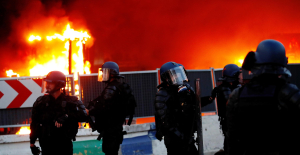 A report recommends the creation of a “riot fund” to cover communities
A report recommends the creation of a “riot fund” to cover communities With 3.5 billion euros collected, life insurance recorded its best month in 10 years in March
With 3.5 billion euros collected, life insurance recorded its best month in 10 years in March Volvic factory shut down after “an act of malicious intent”: production can resume “at the earliest” on Friday
Volvic factory shut down after “an act of malicious intent”: production can resume “at the earliest” on Friday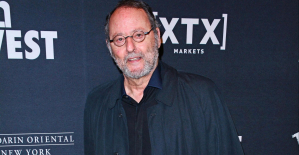 Jean Reno publishes his first novel Emma on May 16
Jean Reno publishes his first novel Emma on May 16 Cannes Film Festival: Meryl Streep awarded an honorary Palme d’Or
Cannes Film Festival: Meryl Streep awarded an honorary Palme d’Or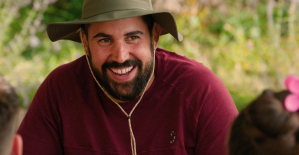 With A Little Something Extra, Artus and his disabled actors do better than Intouchable on the first day
With A Little Something Extra, Artus and his disabled actors do better than Intouchable on the first day Madonna ends her world tour with a giant - and free - concert in Copacabana
Madonna ends her world tour with a giant - and free - concert in Copacabana Omoda 7, another Chinese car that could be manufactured in Spain
Omoda 7, another Chinese car that could be manufactured in Spain BYD chooses CA Auto Bank as financial partner in Spain
BYD chooses CA Auto Bank as financial partner in Spain Tesla and Baidu sign key agreement to boost development of autonomous driving
Tesla and Baidu sign key agreement to boost development of autonomous driving Skoda Kodiaq 2024: a 'beast' plug-in hybrid SUV
Skoda Kodiaq 2024: a 'beast' plug-in hybrid SUV The home mortgage firm rises 3.8% in February and the average interest moderates to 3.33%
The home mortgage firm rises 3.8% in February and the average interest moderates to 3.33% This is how housing prices have changed in Spain in the last decade
This is how housing prices have changed in Spain in the last decade The home mortgage firm drops 10% in January and interest soars to 3.46%
The home mortgage firm drops 10% in January and interest soars to 3.46% The jewel of the Rocío de Nagüeles urbanization: a dream villa in Marbella
The jewel of the Rocío de Nagüeles urbanization: a dream villa in Marbella Europeans: a senior official on the National Rally list
Europeans: a senior official on the National Rally list Blockade of Sciences Po: the right denounces a “drift”, the government charges the rebels
Blockade of Sciences Po: the right denounces a “drift”, the government charges the rebels Even on a mission for NATO, the Charles-de-Gaulle remains under French control, Lecornu responds to Mélenchon
Even on a mission for NATO, the Charles-de-Gaulle remains under French control, Lecornu responds to Mélenchon “Deadly Europe”, “economic decline”, immigration… What to remember from Emmanuel Macron’s speech at the Sorbonne
“Deadly Europe”, “economic decline”, immigration… What to remember from Emmanuel Macron’s speech at the Sorbonne These French cities that will boycott the World Cup in Qatar
These French cities that will boycott the World Cup in Qatar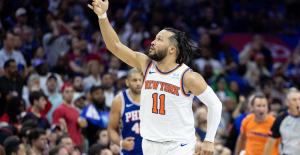 NBA: the Pacers and the Knicks will be there in the play-off semi-finals
NBA: the Pacers and the Knicks will be there in the play-off semi-finals Tennis: like last year, Sabalenka joins Swiatek in the final in Madrid
Tennis: like last year, Sabalenka joins Swiatek in the final in Madrid OM: scorer against Bergamo, Mbemba moved after the final whistle
OM: scorer against Bergamo, Mbemba moved after the final whistle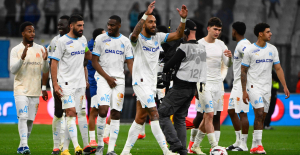 OM-Atalanta: the lines of the match
OM-Atalanta: the lines of the match





